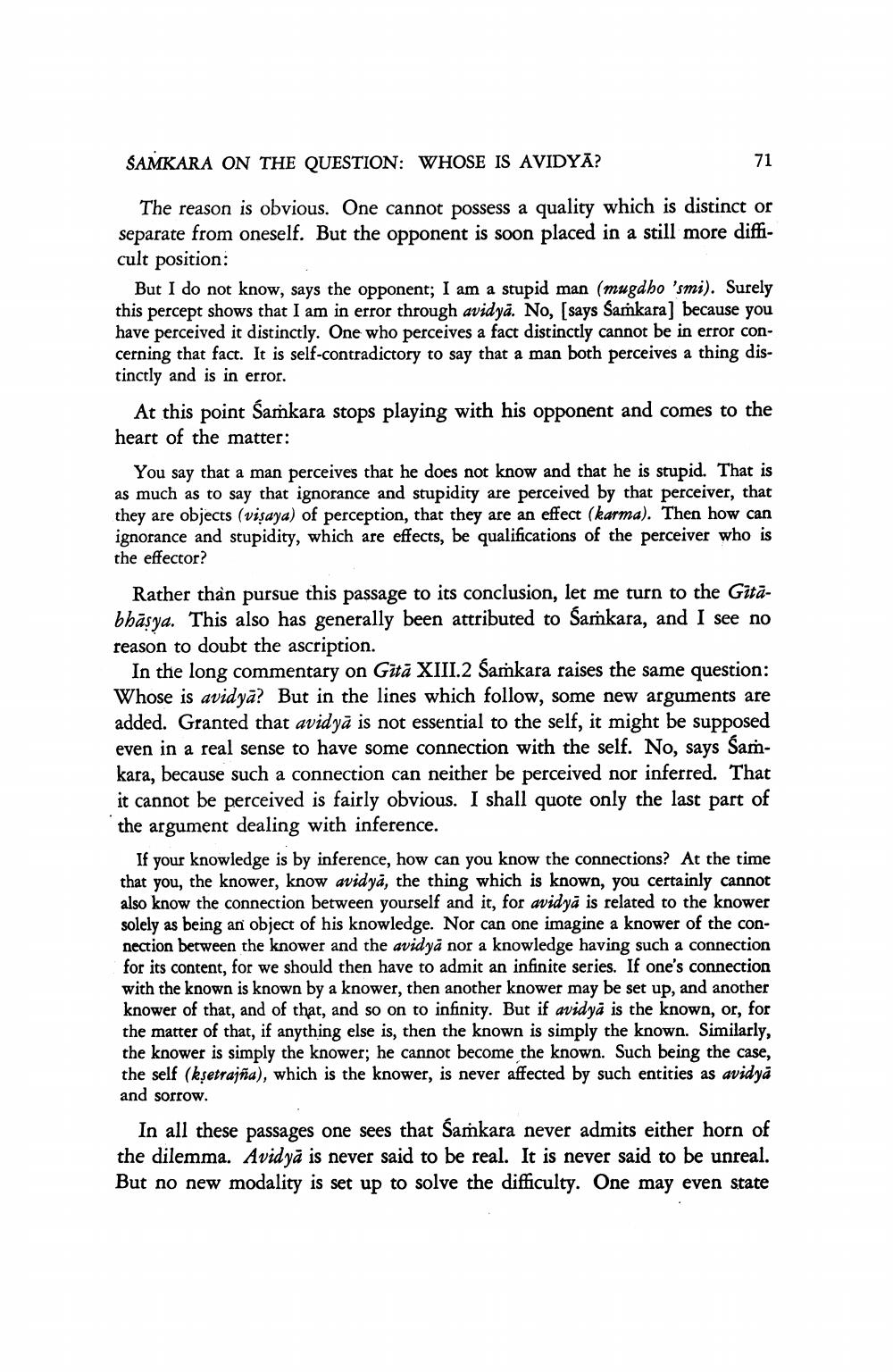________________
SAMKARA ON THE QUESTION: WHOSE IS AVIDYA?
The reason is obvious. One cannot possess a quality which is distinct or separate from oneself. But the opponent is soon placed in a still more difficult position:
But I do not know, says the opponent; I am a stupid man (mugdho 'smi). Surely this percept shows that I am in error through avidya. No, [says Samkara) because you have perceived it distinctly. One who perceives a fact distinctly cannot be in error concerning that fact. It is self-contradictory to say that a man both perceives a thing distinctly and is in error.
At this point Samkara stops playing with his opponent and comes to the heart of the matter:
You say that a man perceives that he does not know and that he is stupid. That is as much as to say that ignorance and stupidity are perceived by that perceiver, that they are objects (vişaya) of perception, that they are an effect (karma). Then how can ignorance and stupidity, which are effects, be qualifications of the perceiver who is the effector?
Rather than pursue this passage to its conclusion, let me turn to the Gitabhāsya. This also has generally been attributed to Samkara, and I see no reason to doubt the ascription.
In the long commentary on Gita XIII.2 Samkara raises the same question: Whose is avidyā? But in the lines which follow, some new arguments are added. Granted that avidyā is not essential to the self, it might be supposed even in a real sense to have some connection with the self. No, says Samkara, because such a connection can neither be perceived nor inferred. That it cannot be perceived is fairly obvious. I shall quote only the last part of the argument dealing with inference.
If your knowledge is by inference, how can you know the connections? At the time that you, the knower, know avidyā, the thing which is known, you certainly cannot also know the connection between yourself and it, for avidya is related to the knower solely as being an object of his knowledge. Nor can one imagine a knower of the connection between the knower and the avidyā nor a knowledge having such a connection for its content, for we should then have to admit an infinite series. If one's connection with the known is known by a knower, then another knower may be set up, and another knower of that, and of that, and so on to infinity. But if avidyā is the known, or, for the matter of that, if anything else is, then the known is simply the known. Similarly, the knower is simply the knower; he cannot become the known. Such being the case, the self (kşetrajña), which is the knower, is never affected by such entities as avidya and sorrow.
In all these passages one sees that Samkara never admits either horn of the dilemma. Avidyā is never said to be real. It is never said to be unreal. But no new modality is set up to solve the difficulty. One may even state




